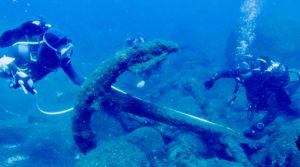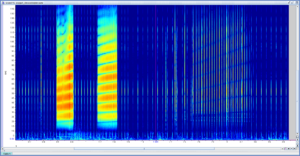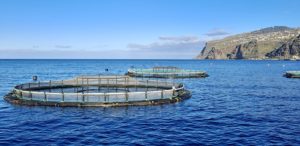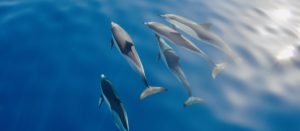Education for sustainable development: a marine litter case study
We have a new doctor in the house! Sara Bettencourt defended her thesis last week — and passed! We’re delighted and not at all surprised, because Sara’s research into marine litter and educational tools to foster sustainable development was thorough, novel and much-needed. Read on to learn about one of the key weaknesses worldwide(!) in education for sustainable development, a simple method to improve it, and what we can all do to make a positive impact on marine litter.

So, Dr. Sara, tell us what got you interested in marine litter!
My academic path wasn’t a traditional one. I started with a bachelor’s in Biochemistry and then did a Master’s in Applied Biochemistry – Biomedicine. I worked in a lab doing yeast cultivation, monitoring growth and working with volatile fatty acids. None of that was focused on the ocean. I was on the mainland, I couldn’t even see the sea! But then I decided to return to my island, to Madeira, and at the same time was becoming more and more interested in the circular economy and education. So I decided to enroll in a PhD that allowed me to explore those topics and in an area that hadn’t been investigated much here. Marine litter checked all the boxes.
You sound proud to be from Madeira. How did that influence your choice in topic?
Yes, I really like living on this island. We have good life conditions and we have a lot of beautiful nature to protect, including the sea. I wanted to make a contribution to that, and also to the island’s sustainable development. When I returned in 2019, after living on the mainland for five years, people weren’t very aware of sustainable development here. Not many people were talking about it. But it’s very important for Madeira and since I like this island so much, I wanted to make a positive contribution in this area.
Are you now an ocean convert?
Yes. Definitely. When I left my Master’s, I realized I wasn’t a person who liked to work 8 hours in a lab. I need to have contact with people, to do practical work. I like very much the work I did for my PhD — talking with people, educating people and cleaning a lot of beaches!

The MARE-Madeira Youth Ambassadors Beach Clean 2023 at Almirante Reis. Sara took part and shared her knowledge on marine litter with local high school students.
What was most surprising to you, coming to the world of the ocean and its challenges?
I wasn’t very knowledgeable about marine litter in the beginning, so I started from the basics. I sent around questionnaires to find out what people know, what they didn’t know and what needed to be done. I also went to the beach to uncover the sources of litter, its pathways and what we can do. It was very shocking for me to discover that we have a lot of litter here! Sometimes we go to the beach and we don’t see as much litter as there really is. The first beach clean I did I was really astonished by the amount of litter there was – we collected almost 1,000 cigarette butts! That was really shocking to me. I wasn’t expecting to find so much litter because we don’t talk about it. For me, it had never been as real as it was in that moment.
Some of your earliest work was doing a literature review of the issue. What did you learn?
My literature review mainly investigated the use of education to foster sustainable development, and as a tool to curb marine litter. I found that there’s still very limited research in this area and that few people explore education when trying to tackle marine litter. Some places incur taxes, fines or use other economic incentives, but few use education. I also found that there was very little research done on marine litter in oceanic islands, like Madeira. There was one published work when I started, from our colleague Sole regarding marine litter in Madeira Island. Just one study on an island of this size! It’s been a neglected topic.

On the education and sustainable development side, what were some of your most interesting findings?
That we need to change our perspective about who, what and how we teach. There are people exploring the use of education for sustainable development in distinct areas and their work highlights the importance of a learner-centered approach — we must focus our attention on the learner. It was not surprising to find in the literature that people normally just work with children: it’s an easier group to work with, as it’s easy to go to a school explaining some theme and then those children go home and share that knowledge with their parents. But it was still striking how little research is done with adults and seniors. These are very important target groups! We should be trying to foster education for everyone and take a life-learning approach. I made sure my work included all of these groups.
How did you do it?
I split my work between three different groups: children/teenagers, adults and seniors/retirees. It was very challenging because I needed to prepare a lot of materials, to adapt the information to each group and then access these groups. For the adults, I went to some schools that offer night courses and I also created a massive open online course (also known as MOOC) to reach a broader audience — I had participants from seven countries! For the seniors and retirees, I went to community day centers and one senior university. I really enjoyed working with this group. They are sometimes very neglected when we talk about education, because people think we don’t need to educate and raise awareness among the elderly. But some of the things I taught this group were new for them and it was very good for me to receive feedback like, “Now I will be much more careful with my litter,” and “I will stop putting my litter in the streams because you taught me that I shouldn’t do that.” Overall, it was a very enriching experience to have these different targets groups, who have different reactions, and to target my work and communication using different styles and approaches.
What were the main messages about marine litter you were trying to send?

One of my main messages was to help people realize that Madeira’s streams are an important pathway for transporting litter into the ocean. Because sometimes people know but they don’t think about it, that streams transport this litter. Some people reported to me that they used to dispose of their litter in the streams because they thought the water would clean it and it would disappear. They were also unaware of the time litter can take to decompose in the ocean. For example, one elderly woman told me that she thought that since she couldn’t see the litter she’d disposed of anymore, she thought the sea had just “eaten” it — that was the word she used. So there was still a lack of knowledge regarding the source and pathways of litter and its degradation times. Finally, while some people associate animals with marine litter and note the risks of ingestion or entanglement, some people don’t realize that it can also impact the economy of their region or that it can have social consequences. It was really important to foster this knowledge with the different people I worked with.
What were the most interesting things that you learned?
With children, I noticed that they often link nature and the ocean to animals. They want to preserve marine life and the ecosystems. They’re very aware of that, so we need to tailor our approach to appeal to their emotions, to help students feel more connected to the topic. With adults and seniors, it was very interesting for me to hear about some of the old practices people had. The older inhabitants reported that they used to use a lot of reusable items — they didn’t use plastic, they used metal and glass. A lot of people told me about the milk and how it was distributed to their homes by a man carrying the milk in a metal container. It was a much more circular strategy. Of course, in that time they didn’t talk about a ‘circular economy’, but in fact they were practicing it. It was also important for me to hear about why people disposed of litter in the streams. They told me they used to do it because they didn’t have garbage collection systems, so for them the natural way to dispose of litter was putting the garbage in the stream and letting the rain do the rest.
It was in my work plan, but due to Covid my work was delayed as I couldn’t assess the effectiveness of the interventions in schools or day centers for a long time. So in the end I had to skip the conversations with other stakeholders and the governments. But in two of my articles I made suggestions of some of the measures that can reduce marine litter here. One suggestion was to have plastic and metal depository systems; we already have them for beer bottles and it works very well. It could be extended to plastic bottles and metal cans, which has been reported to be effective in other countries. Another way is to have more door-to-door recycling collection systems. In Funchal most homes have this system, but in many other municipalities people have to walk somewhere with their sorted garbage to recycle it. People reported to me that if they had a door-to-door system they would sort the garbage more.
What’s your hope for where this research goes in future? Do you want to be a part of it?
Yes, I liked my work a lot and the results show how important education is for sustainable development. We did a survey of the population and found that just about 28% of the population of RAM (Autonomous Region of Madeira) knows what marine litter is and acts accordingly. My research also shows that it’s possible to use education to foster knowledge, perceptions and behavioral intentions. It will be important to continue to work with different people and targets around the island. A goal is to continue to expand this work and also to see if we can have long-term monitoring of its effectiveness, to see if actions and change persist over time.

We need to act quickly, though. Some of the beaches that we surveyed are already classified as dirty and are very near the ‘very dirty’ level, which is the worst level in the beach cleanliness index used. We need to continue to educate people so that they can — so that we all can — do our part to contribute to a sustainable future.
You say you love your island. What are you most excited about and most concerned about for Madeira’s future?
I’m excited because I’m seeing we’re putting a lot of effort into environmental questions — we are aware, developing actions and using lots of approaches to different issues. It makes me happy to see this. An example is that Noite de Mercado, a big street party we have at Christmas, now uses reusable cups. It’s a small measure that’s already had a big impact. I remember in the past, the day after the party there would be plastic cups all over the street. Now, people buy a cup and reuse it. I’m very happy to see this difference. As for concerns, I think there’s still a way to go in improving our education. We are of course developing educational interventions and they are becoming more frequent, but they are not reaching everyone and they focus a lot on school students. It’s important to not neglect other groups, to have a broader educational program.
Is there anything researchers can do to improve that?
Yes of course, researchers are very important. With this work, I showed that marine litter is a problem in Madeira. We also have concrete results showing that education is effective when addressing environmental issues. Researchers can provide baseline knowledge about an issue and they can provide some solutions. But then they need help from governments, town halls, companies and other stakeholders to implement and make their suggestions and inputs a reality.
Final message?
My big message is that everyone is responsible for limiting marine litter. We found in our questionnaire that some people feel they are not responsible for this litter. But it’s not true because everyone is responsible and can reduce it. Marine litter is a problem where everyone can act. Which is good in the sense that anyone can improve it, but bad in the sense that sometimes people don’t feel individually responsible. We are all responsible.

